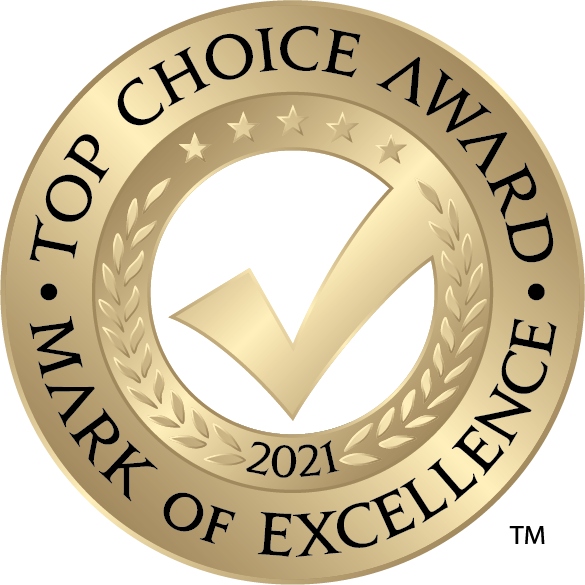COVID-19 Restrictions Have Impacted In-Person Witnessing of Wills
During the global pandemic, many aspects of regular life have been disrupted. At times, it has been difficult to do even simple things like buying toilet paper, booking a vaccine appointment, or getting a haircut at a salon. For some, important life events such as weddings and funerals have been altered because of limitations on how and when we can gather.
In some instances, disruptions due to COVID-19 restrictions have even extended to the last days and hours of people’s lives. For many in the hospital, who and how many visitors they can have has been limited. This was the case in the recent Ontario decision Re: Lacroix Estate.
Ontario Case Demonstrates COVID-19 Impact on Estates Litigation
The estate of Ms. Lacroix is at the centre of the case. An individual sought a Certificate of Appointment of Estate Trustee with a Will. The issue the court had to address focussed primarily on whether or not Ms. Lacroix had a valid Will.
The background of this case is that a friend of Ms. Lacroix’s contacted a lawyer, Ms. Opatovsky and advised that Ms. Lacroix was in the St. Catharines General Hospital in the late stages of her battle with cancer. A few days later, Ms. Lacroix and Ms. Opatovksy spoke by phone and Ms. Lacroix instructed the lawyer to prepare a Last Will and Testament. According to her lawyer, Ms. Lacroix’s primary concern was for her youngest child, as she was divorcing her spouse while she was suffering from terminal cancer and she wanted her wishes documented.
COVID-19 necessitates a Holographic Will
Under normal circumstances, Ms. Lacroix’s lawyer would have attended the hospital in person with her assistant to ensure proper execution of the Will with the required two witnesses in person. However, when the lawyer contacted the hospital administrators, they indicated the lawyer could not visit the hospital due to COVID-19 restrictions.
The lawyer then provided advice to Ms. Lacroix on how to create a Holographic Will, so she could document her wishes without the need for two in-person witnesses. She could then refer to the typed draft Will that her lawyer had prepared and incorporate it by reference.
Ms. Lacroix handwrote the following:
Tuesday May 26, 2020
I, Rebecca Stephanie Lacroix, declare that this holographic will shall constitute my last will and testament and I hereby incorporate into this my will the attached draft will which I have initialled on each page for identification purposes.
RSLacroix
While it may appear that Ms. Lacroix’s intentions are clear, the question the court needed to consider was whether the documents were in a form that constituted a valid Will. If the Will was not valid, the court would deny the applicant’s application for a Certificate of Appointment of Estate Trustee with a Will.
Holographic Will was not valid
The rules for a valid Will are very prescriptive with specific rules for format and witnessing. However, with a Holographic Will, the individual writes a Will entirely by hand, and it does not require any witness signatures. It does require an affidavit from an individual familiar with the individual’s signature and handwriting to confirm authenticity. Assuming the Holographic Will is valid, it is possible to incorporate additional documents by reference.
The court ultimately determined that the Lacroix Holographic Will was not valid.
There didn’t appear to be any concerns that the handwriting was in fact Ms. Lacroix’s. There was also no ambiguity in the content of the note. It appeared to have been her intent for the entire document to be a valid Will. The court also confirmed that separate documents could be incorporated by reference into a valid Holographic Will.
However, the reason the Will failed, in this case, was due to the fact that the handwritten Holographic Will did not stand alone as a Will. The content of Ms. Lacroix’s note did not have any meaning without the document she attached to it. That is, there was no property transferred in the handwritten note, which is a requirement for a valid Holographic Will. The Will must be able to stand on its own, even if it incorporates other documents.
Can Wills be witnessed virtually?
As discussed in a previous blog post regarding changes in real estate, many aspects of the law and other formal processes have changed as a result of innovations developed during the pandemic. Wills, estates, and estate litigation are also part of this trend.
Earlier in 2021, the Ontario Government permanently allowed virtual witnessing of Wills and power of attorney documents through the Accelerating Access to Justice Act, 2021.
However, there are strict limits on how virtual witnessing can be done. It is important to receive legal advice when considering preparing a Will or Power of Attorney.
For example, unlike in-person witnessing of a Will, if you are proceeding with virtual witnessing, at least one of the two witnesses must be a member of the Law Society of Ontario. Prior to the passage of the Accelerating Access to Justice Act, 2021, there were similar emergency orders in place during the pandemic.
Are there other changes that may impact Estates Litigation in Ontario moving forward?
The Accelerating Access to Justice Act, 2021 contains other changes that may impact estates litigation.
The Accelerating Access to Justice Act, 2021 amends the Succession Law Reform Act to change the rules for how courts interpret Wills that have been witnessed in person. It also changes how family status changes – such as marriages and separations – can impact Wills.
Contact Prudent Law in Mississauga and Milton for Adept Advocacy in Estate Litigation Matters
The estate litigation lawyers at Prudent Law in Mississauga and Milton are a trusted resource for representation on a variety of estate litigation issues. We provide practical advice and passionate representation in both litigation and alternative dispute resolution options. If you are facing a Will and estates dispute and you would like to discuss it with one of our experienced estate lawyers, please call us at 905-361-9789, or contact us online.







